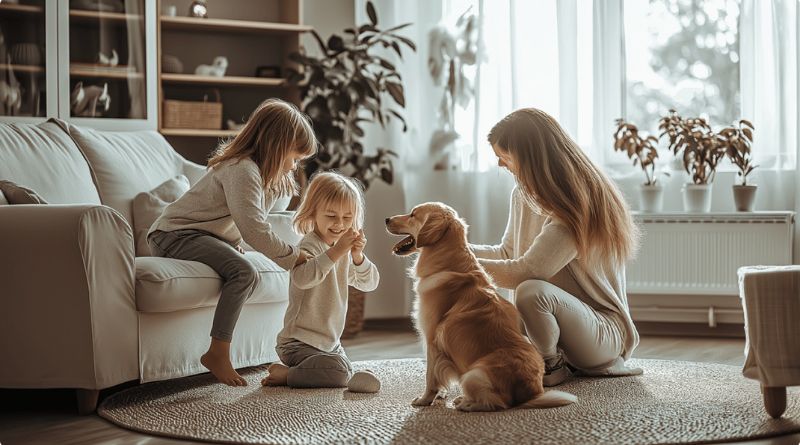The phrase “Have a good evening” is a common and courteous way to wish someone well as the day winds down. It’s one of those small gestures that can make a significant impact on social interactions, showing kindness and thoughtfulness. But while it’s often used casually, there’s more to this simple greeting than meets the eye. In this article, we will explore the meaning behind “Have a good evening,” why it’s used, and how this phrase fits into both social and professional settings. We’ll also answer some frequently asked questions (FAQs) to help you understand its various uses.
Table of Contents
What Does “Have a Good Evening” Mean?
“Have a good evening” is a friendly and polite expression used to wish someone a pleasant evening ahead. It typically follows a day of work, errands, or other activities, signaling the transition from daytime into the evening hours. The phrase conveys positive intent, offering the person a wish for a restful, enjoyable, or productive evening, depending on the context.
It can be used as a parting phrase when leaving work or social gatherings, or simply as a way of acknowledging someone’s presence during the evening. It’s a common social norm in many cultures to express good wishes before the day ends, reinforcing goodwill and kindness.
Why Do We Say “Have a Good Evening”?
- To Be Courteous: Saying “Have a good evening” is a polite way to close a conversation or interaction. It shows that you are thinking of the other person’s well-being and want to send them off with positive thoughts.
- To Express Kindness: Like other common expressions such as “Have a good day” or “Take care,” saying “Have a good evening” is a simple but effective way to spread kindness. It helps nurture positive interactions and relationships, whether in personal or professional settings.
- To Acknowledge the Time of Day: The phrase is a natural way to mark the transition between the afternoon and evening hours. It acknowledges the time of day and signals the end of the workday or other activities. It can also be used in informal settings, like at a party or social gathering, to wish guests a pleasant evening as they leave.
- To Promote Goodwill: Offering a kind farewell or greeting can leave a lasting positive impression. By wishing someone a good evening, you’re fostering an atmosphere of warmth and goodwill, which is especially important in maintaining positive relationships in both personal and professional environments.
When to Use “Have a Good Evening”
“Have a good evening” can be used in a variety of situations, making it versatile and suitable for both formal and informal settings. Here are some instances where it’s commonly used:
- At the End of the Workday: It’s common to say “Have a good evening” to colleagues when you’re leaving the office or finishing a work-related task. This is especially true when leaving the office or when a conversation or meeting concludes in the evening. Example: “Thanks for the meeting today. Have a good evening!”
- After a Social Gathering: If you’re at a party, dinner, or another social event, you can use “Have a good evening” when saying goodbye to other guests. It’s a friendly and polite way to end the event. Example: “It was great seeing you tonight. Have a good evening!”
- When Departing a Family or Friend’s House: When leaving a family member’s or friend’s home in the evening, you can say “Have a good evening” as a polite and positive farewell. Example: “Thanks for dinner. Have a good evening!”
- In Professional or Customer Service Settings: Whether you’re on a phone call with a client or customer, or parting ways with a colleague, it’s a polite and professional way to close the interaction. Example: “It was a pleasure speaking with you. Have a good evening!”
- When You’re Not Sure of the Person’s Plans: If you’re uncertain whether the person will be relaxing, working, or attending events, saying “Have a good evening” is a neutral and kind way to acknowledge their time without making assumptions. Example: “I hope you have a good evening ahead. See you soon!”
The Power of Positive Farewells
Even a short phrase like “Have a good evening” can have a lasting impact. Here’s why:
- Leaves a Positive Impression: A courteous and thoughtful farewell leaves a positive impression. When you wish someone a good evening, you’re showing that you care about their well-being and that you want them to enjoy the time they have ahead.
- Enhances Social Bonding: Offering a polite greeting, especially in the evening, can foster stronger connections with others. It can make the other person feel appreciated and valued.
- Fosters Professionalism: In professional contexts, using polite expressions like “Have a good evening” helps maintain an atmosphere of respect and professionalism. It helps to convey that you are both respectful and considerate of the other person’s time.
- Creates a Positive Atmosphere: Simple words of kindness help create an overall positive atmosphere, especially when everyone is winding down their day. This can improve mood and mental well-being, as people tend to feel appreciated when others express goodwill.
Alternatives to “Have a Good Evening”
If you want to mix things up a little or use a different greeting, here are some alternatives to “Have a good evening”:
- “Enjoy your evening!”
- “Wishing you a pleasant evening.”
- “Have a relaxing evening.”
- “I hope you have a great evening ahead.”
- “Take care and have a good evening!”
- “Have a lovely evening.”
- “Enjoy the rest of your evening!”
FAQ About “Have a Good Evening”
1. Is “Have a good evening” a formal or informal phrase?
“Have a good evening” is a versatile phrase that can be used in both formal and informal contexts. It works in professional settings when closing a meeting or conversation and is also appropriate for casual social gatherings.
2. Can I use “Have a good evening” instead of “Good night”?
Yes, “Have a good evening” can be used as a substitute for “Good night,” especially earlier in the evening before it’s time to go to bed. “Good night” is generally reserved for the end of the night when someone is about to sleep.
3. Is it appropriate to say “Have a good evening” in business emails?
Yes, it is appropriate to use “Have a good evening” in business emails or professional communication, especially when closing a conversation. It’s a polite and respectful way to end an email on a positive note.
4. Can “Have a good evening” be used in a professional setting?
Yes, “Have a good evening” is professional enough for use in work-related settings. It’s a polite and friendly way to conclude meetings, emails, or phone calls with colleagues, clients, or customers.
5. Should I say “Have a good evening” if I don’t know the person well?
Even if you don’t know someone well, “Have a good evening” is still an appropriate and kind phrase to use. It doesn’t require familiarity and is simply a polite wish for the other person.
Conclusion
“Have a good evening” may seem like a simple expression, but it has the power to leave a lasting positive impression. Whether used in a professional or personal context, this small act of kindness can enhance social interactions, strengthen relationships, and create a positive atmosphere. So the next time you part ways with someone at the end of the day, don’t forget to send them off with a sincere “Have a good evening”—it’s a gesture that can make all the difference.



